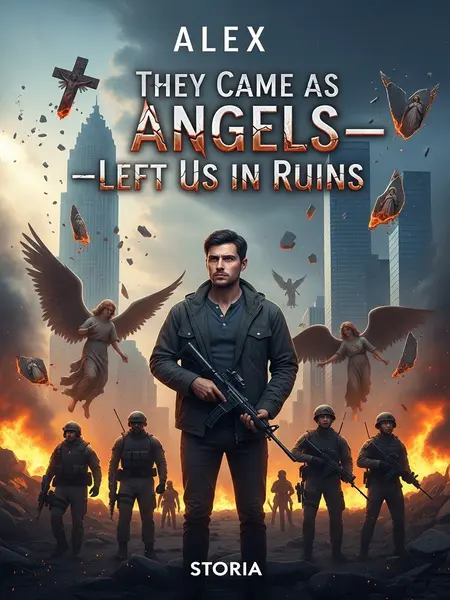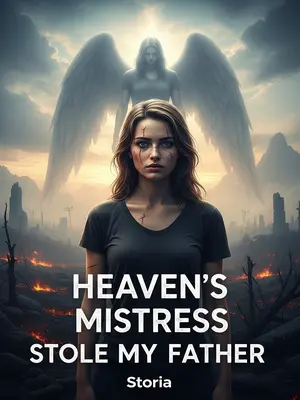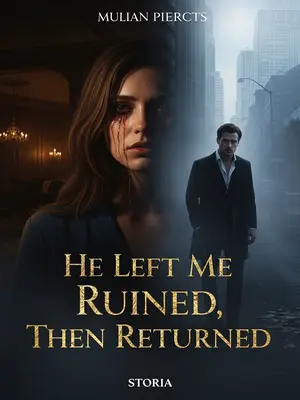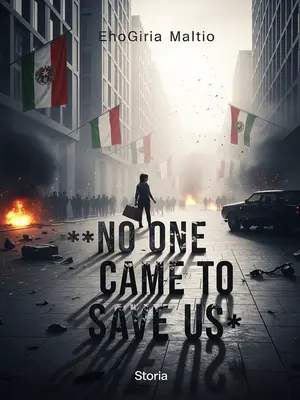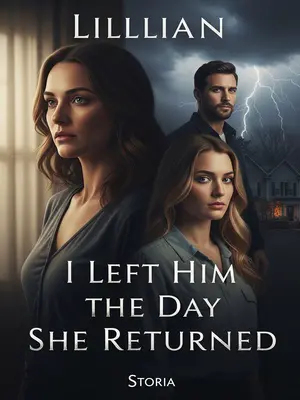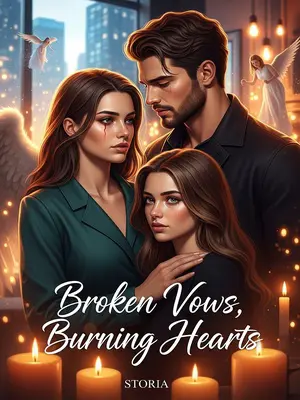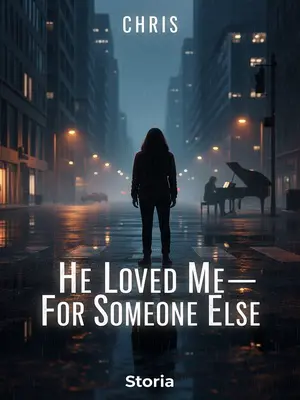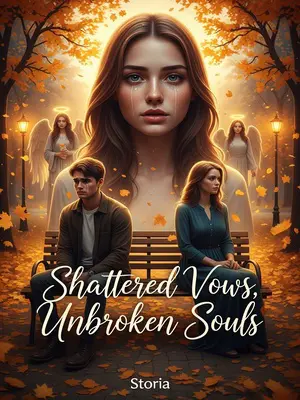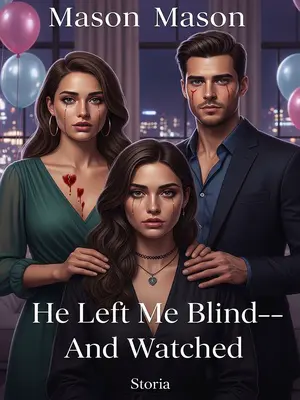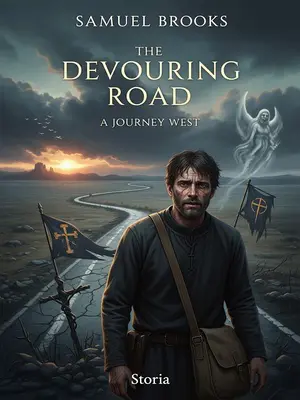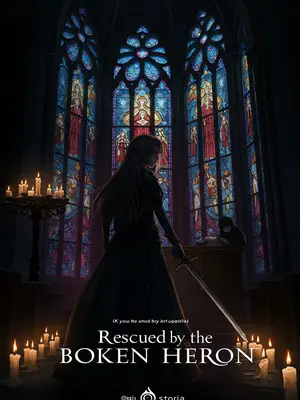Chapter 3: No One’s Coming to Save Us
"President’s in a bunker somewhere. Pulled all our troops home. Can’t blame him—every city’s under attack. We’re holding the line, but it’s ugly."
Japan was even worse. Mount Fuji’s eruption had already wrecked the country, and now the angels made it hell. Tens of thousands died, the army wiped out before it could fight. The prime minister changed three times in a single day, and only U.S. help kept the government running. With us pulling out, collapse was inevitable.
He sighed. "Japan’s a train wreck. Fuji blew, then the angels hit. Government’s barely holding on. With us gone, they’re toast."
Korea had already declared national extinction. North Korea opened its borders, letting South Koreans in. Armored forces guarded the 38th parallel, fighting angels trying to cross. Thanks to stubborn defenses, they barely held out. All of Korea was hell—angels slaughtered at will. Corpses clogged the Han River, turning it red.
"Heard the Koreas teamed up, North and South. Only way to hold the line. Han River’s running red."
Here at home, over forty cities reported angel invasions, with more than 100,000 in total. After a day of brutal fighting, over 20,000 angels had been confirmed killed. The rest were scattered, causing trouble, but the army was hunting them down. We’d get the rest soon enough.
"We’ve lost a lot, but we’re fighting back. Army’s got most of ‘em boxed in. We’ll get the rest soon enough."
But that didn’t mean we were safe. Angels had spilled out of Europe and America, invading neighboring non-Christian countries, especially Albania, Bosnia, and southern Kosovo. Since most people there were Muslim, the destruction was even worse. Maybe because they were considered infidels, the angels’ hatred was even greater—they destroyed every non-Christian religious building, demolished them completely, and killed with extreme cruelty.
He spat on the ground, voice rising. "They’re not just after Christians—anyone’s fair game. Mosques, synagogues, you name it."
Now, every country was fighting its own angels. Those without angels were mostly Islamic countries, but their military strength and size couldn’t compare to the big players. Whether they could protect themselves was anyone’s guess, and help wasn’t coming.
"Rest of the world’s on its own," he muttered. "No one’s got the firepower to help anyone else."
Our leaders were bracing for the worst. We might face a full-on angel siege, millions attacking from all sides. The country was in total war mode. Factories everywhere rushed to crank out supplies. We had to be ready for the final battle.
The soldier’s voice dropped. "Whole country’s on a war footing. If they come back, we’ll be ready. We have to be."
No one’s coming to help. We’re on our own.
He looked at me, eyes hard. "No one’s coming to save us. We’ve got to save ourselves."
If anyone could do it, it was us. Even in hell, I felt a flicker of pride. We’d fought back before—maybe we could do it again.
Because my city was a state capital, big and packed, there were lots of angels. To protect more people, the safe zone was set up around city hall, covering the main neighborhoods. The army was concentrated there, only able to send small squads into the old city to search for survivors.
We moved fast, ducking behind burned-out cars and bus stops. City hall glowed in the distance, a beacon in the chaos. Soldiers in full gear patrolled the perimeter, eyes on the sky.
They wrapped my arm with duct tape and gauze—field medicine, American style—then put me and the wounded guy in the middle as we crept toward the safe zone.
We moved in a tight knot, every sound making us jump. The wounded guy limped, refusing help. I kept my head down, heart pounding.
"Are these monsters really angels?" I asked, stepping over a half-body and swallowing back bile.
My voice shook as I stared at the legs and the pool of blood. I forced myself to keep moving.
"We don’t know either. But don’t worry—before we left, we heard folks up north caught a live one. They shipped it off to D.C. I’m sure the government’ll figure out where these monsters come from soon."
The soldier gave a half-smile. "We got smart people on it. If there’s a way to beat ‘em, we’ll find it."
"But what if they really are angels?"
My question hung in the air. My heart thudded in my chest.
"Even if they are, they can’t just come here and kill people. This isn’t their turf. Even if God Himself hasn’t spoken up, these birdmen show up, call us sinners, and start killing and burning? Who do they think they are?"
The captain’s voice rose, trying to stay calm, but I could see the anger in his eyes.
He spat on the ground, voice rising. "They don’t get to judge us. Not here. Not ever."
If angels were real, could the figures from our own legends be real too? I almost laughed, picturing Bigfoot and Paul Bunyan showing up with a chainsaw.
George Washington, Lincoln, the Founding Fathers, ghosts, monsters, urban legends...
For a wild second, I imagined the Founding Fathers rising from their graves, muskets in hand, ready to fight. I almost snorted. What would Jefferson say to an angel, anyway?
I looked up at the sky. The thick clouds hung like a curtain, hiding the moon. Sometimes, I swore I saw something move behind them—a wing, a tail, something huge. I shivered and kept walking.
We made it through the old city without trouble, finally reaching the edge of the safe zone. I let out a breath I didn’t know I’d been holding.
Searchlights swept the sky, soldiers waved us through a checkpoint. The air was thick with smoke and fear, but at least here, there were people—survivors.
Searchlights everywhere. People being herded into the subway for shelter. Armed soldiers on guard, eyes glued to the sky. A few angel corpses lay in the open, being loaded into special containers by forklifts.
The scene was fractured—disaster movie meets sci-fi horror. The angels’ bodies looked wrong—too beautiful, too monstrous. Workers in hazmat suits hustled to lock them away.
We split up. I joined the line for the subway station, shuffling forward with the others, eyes on the floor.
It was packed—wounded people crying out, the air thick with blood and sweat. Soldiers and staff tried to keep order. The signal was weak, and people wandered around with their phones, desperate for word from loved ones.
The subway reeked of antiseptic, fear, and unwashed bodies. Kids whimpered, parents whispered empty reassurances. People crowded around power outlets, clutching their phones, hoping for a signal.
I leaned against the wall, took out my phone, and stared at the X on the signal bar. I let out a bitter laugh. I’d joked about the apocalypse before, but never thought it would come like this—no warning, no sense. Even now, it felt like a bad dream.
I let my head fall back against the tiles, cold biting through my jacket. The world outside was gone, but in here, life kept grinding on—messy, scared, stubborn as hell.
My arm still hurt, but it was just a sprain—nothing serious. Compared to the people who’d died out there, I was lucky. Plus, I probably wouldn’t have to go to work tomorrow. Silver linings, right?
I managed a shaky grin. The office was probably toast anyway. At least I didn’t have to worry about the boss.
For the next three days, I stayed in the subway station. Gunfire and explosions rattled the walls, lights flickered. Supplies held out, and with the staff and soldiers in charge, there was no chaos or looting. Some brave souls risked their lives to fix the cell towers, and on the afternoon of day two, I finally got to call my parents again.
The days blurred together—sleeping on the floor, eating cold rations, listening to the war outside. When the cell towers came back, the whole station cheered. I called Mom and Dad, just to hear their voices. It made the world feel a little less empty.
America was still holding on, but most of the world had fallen into chaos. Survivors had to dodge angels and bandits. The old order was gone.
Rumors spread faster than facts—gangs looting stores, vigilantes running checkpoints. The old rules were out the window, and everyone knew it. I half expected to see Mad Max roll through any minute.
We weren’t powerless against the angels, but the cost was brutal. Even if the world united, nobody knew if we could win.
News ran clips of resistance fighters—homemade armor, baseball bats, Molotov cocktails. Sometimes they took down an angel, but lost a dozen people doing it. It was a war of attrition, and the angels just kept coming.
Problem was, when things got bad, most people looked out for themselves. Brave resisters got wiped out fighting alone, or turned on each other for scraps.
I heard arguments every night—who got the best spot to sleep, who deserved more food. Old grudges flared up, sometimes fists flew. Human nature, ugly and raw.
Worse, some groups attacked other resistance groups, stealing supplies and weapons. While humanity was burning, two tiny countries even started fighting each other over food. Unbelievable.
It made no sense, but fear made people stupid. News showed grainy footage of militias trading gunfire over a pallet of beans. In the background, the world burned.
"Idiots—still fighting each other at a time like this!" an old guy near me muttered, watching a video on his phone.
He shook his head, thumb stabbing the screen. "You’d think folks would learn. Guess not."
"That’s just people. Disaster hits, everyone thinks of themselves first," I said. He turned, and I realized it was the wounded soldier from before, arm still bandaged. He recognized me, and we started talking. His views made sense—more than most. With nothing else to do, we talked.
He grinned, lines creasing his face. "Ain’t that the truth. World goes to hell, and folks show their true colors. But some of us still try to do the right thing."
"You don’t know—yesterday someone said since we can’t win, we might as well surrender and not resist, maybe we’ll survive. I was so mad, I went up and punched him. Back in the day, that would be treason. He’s a coward and wants everyone else to be cowards too."
He flexed his good arm, pride in his voice. "Had to set him straight. We don’t give up—not here, not ever."
"Well said. Buddy, where are you from? What’s your name?"
He stuck out his hand. "I’m Marcus Hill, but folks call me Mac. I’m from St. Louis, serving here with the Guard. Was supposed to retire in two months, but then this happened. Looks like I won’t be going home."
I shook his hand, glad for the warmth. "I’m Alex. Good to meet you, Mac."
"Trust our country. It won’t take long to fix this."
He nodded, eyes fierce. "You got that right. Ain’t no angel gonna keep us down."
"Of course I trust! When I’m healed, I’m going back out there to fight those birdmen."
He winked, tapping his bandaged arm. "Doc says I’ll be back in action soon. Can’t wait to give those winged freaks a taste of American steel."
I’d always meant to visit D.C., but work got in the way. Now, who knew if I’d ever get the chance? Mac patted my shoulder, seeing my face.
"When you come, let me know. I know D.C. inside out—I’ll show you around. D.C. welcomes you!"
His laugh was genuine, cutting through the gloom. For a second, I almost believed things might get better.
